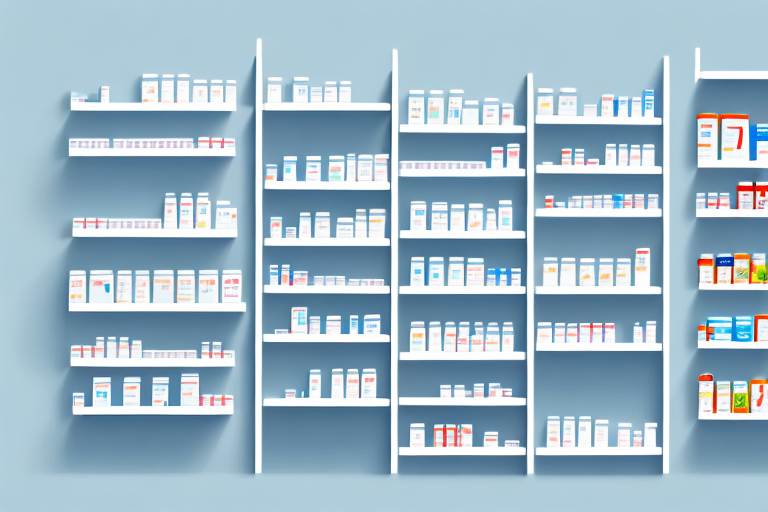Understanding Closed Door Pharmacies
Closed door pharmacies are specialized facilities that cater exclusively to long-term care facilities, hospices, and other healthcare providers. Unlike traditional retail pharmacies, they are not open to the general public and focus on delivering personalized medication management tailored to the specific needs of their clients.
Benefits of Choosing a Closed Door Pharmacy
Personalized Care
With a limited number of clients, closed door pharmacies can offer a higher level of personalized care. Pharmacists take the time to understand each patient's unique medication needs, leading to better health outcomes and increased patient satisfaction.
Access to Specialized Medications
Closed door pharmacies often have access to a broader range of medications, including specialty drugs that may not be available at traditional retail pharmacies. This is particularly beneficial for patients with complex medical conditions requiring specialized treatments.
Enhanced Confidentiality and Privacy
Serving a smaller patient base allows closed door pharmacies to maintain a higher level of confidentiality. Secure systems are typically in place to protect patient information, reducing the risk of data breaches and ensuring privacy.
Finding and Selecting a Closed Door Pharmacy
Locating a Pharmacy Near You
To find a closed door pharmacy in your area, consult your healthcare provider or long-term care facility for recommendations. Additionally, you can search online using terms like "closed door pharmacies near me" or "specialty pharmacies" to identify available options.
Key Considerations
- Licensing and Accreditation: Ensure the pharmacy is properly licensed and accredited by relevant authorities.
- Services Offered: Verify that the pharmacy provides the specific medications and services you require.
- Reputation: Research the pharmacy's reputation by reading reviews and seeking testimonials from other healthcare providers.
- Cost and Insurance: Compare the costs associated with the pharmacy and check if they work with your insurance provider.
Cost Comparison: Closed Door vs. Traditional Pharmacies
Closed door pharmacies may have higher upfront costs compared to traditional retail pharmacies. However, they offer specialized services and access to unique medications that can be invaluable for patients with specific health needs. Many closed door pharmacies provide flexible payment options, such as payment plans or discounts for bulk orders, which can mitigate costs over time.
According to a FDA report, specialty pharmacies play a crucial role in managing complex treatments, which can lead to long-term savings by improving patient adherence and outcomes.
The Role of Insurance in Closed Door Pharmacies
While many closed door pharmacies do not directly accept insurance, some collaborate with specific insurance providers to help cover medication costs. It's essential to consult both your insurance provider and the pharmacy to confirm coverage details and understand any potential out-of-pocket expenses.
Transitioning to a Closed Door Pharmacy
Switching to a closed door pharmacy involves coordinating with your healthcare provider and the new pharmacy to transfer your prescriptions seamlessly. Typically, the pharmacy will manage the transfer process, ensuring that there is no interruption in your medication regimen.
Future Trends and the Evolution of Closed Door Pharmacies
As healthcare continues to move towards personalized and convenient services, closed door pharmacies are expected to grow in prominence. They are likely to play an integral role in managing chronic diseases, reducing hospital readmissions, and enhancing overall patient care through specialized medication management.
Debunking Common Misconceptions
There are several misconceptions surrounding closed door pharmacies, such as the belief that they are only accessible to affluent individuals or that they provide inferior care. In reality, these pharmacies are available to a wide range of patients and often offer a higher standard of care compared to traditional retail options.
Legal and Regulatory Framework
Closed door pharmacies operate under the same legal and regulatory standards as traditional pharmacies but must adhere to additional regulations based on their specialized client base and the types of medications they dispense. For instance, those serving long-term care facilities must follow stringent guidelines for medication handling and storage as outlined by regulatory bodies like the FDA and the Centers for Medicare & Medicaid Services (CMS).
Maximizing Your Closed Door Pharmacy Experience
- Open Communication: Regularly discuss your medication needs and any concerns with your pharmacist.
- Utilize Available Services: Take advantage of home delivery or mail order services to ensure timely access to your medications.
- Stay Informed: Keep abreast of new medications and treatment options that may be available through your pharmacy.
Conclusion
Closed door pharmacies offer a specialized approach to medication management, providing personalized care and access to a wide range of specialized medications. While they may come with higher costs, the benefits they offer can significantly enhance patient outcomes and satisfaction. To choose the right closed door pharmacy, consider factors such as licensing, reputation, services offered, and cost. As the healthcare landscape evolves, closed door pharmacies are poised to play a vital role in delivering high-quality, specialized care to those who need it most.




















